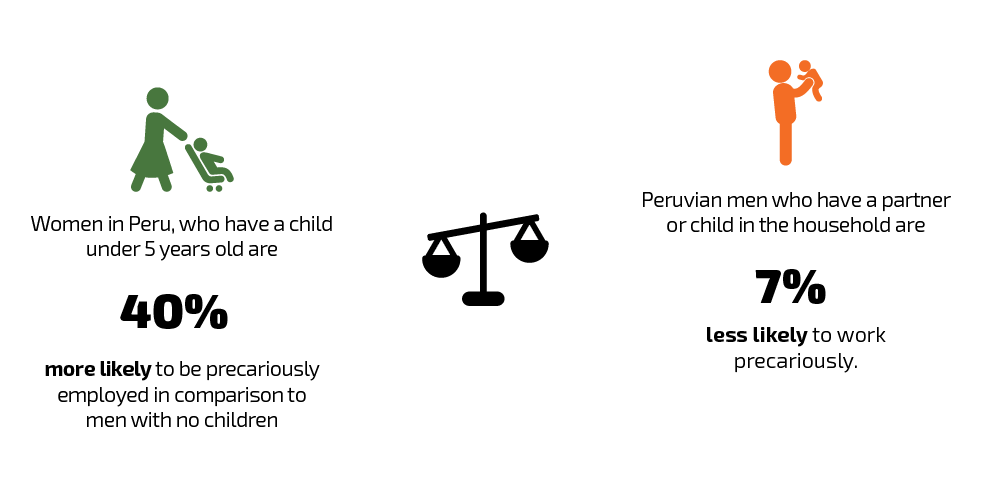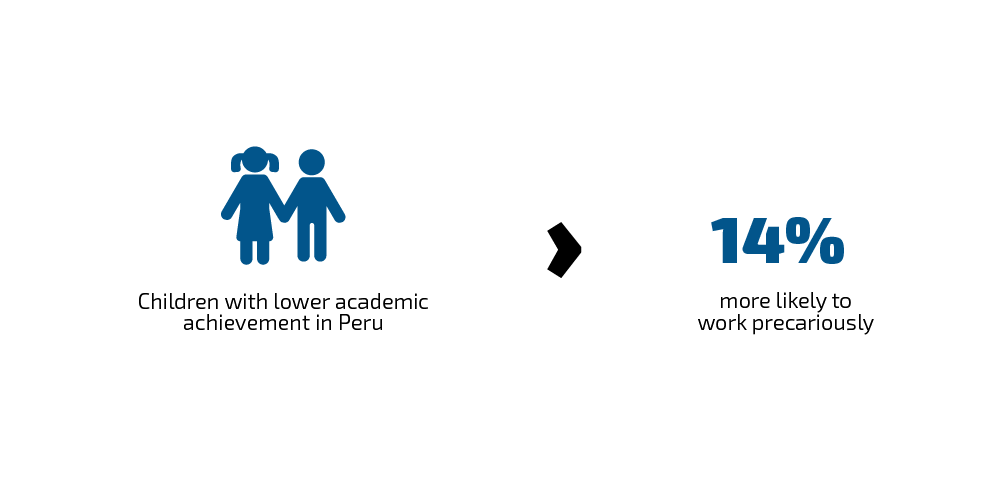In Peru, the gender gap increases as students advance between grades, causing female students to lag behind as they grow older.
Our case study ‘Poor education and precarious jobs in Peru: Understanding who is left behind and why’ uses a mixed methodological approach. It provides a baseline of the “left behind” in the country and builds detailed profiles of those who are excluded. The findings suggest that the overrepresentation of women in those who are marginalised can be explained, at least in part, by the strong influence of gender roles in Peruvian households.
Highlights

Women are either expected to stay at home to carry out domestic tasks or undertake inadequate jobs in the labour market.
The interaction between being female and having a young child in the household was one of the factors most strongly associated with employment precariousness. It raised the probability of being NEET (neither in employment, education or training) by 27.7% and of being precariously employed by 40.3% when compared to men with no children in the household.
When separating the regressions by gender, cohabiting males had a 7% lower chance of working precariously.
Women, however, were 18.4% more likely to be NEET if they cohabited. This is because they are expected to remain in the house and take care of domestic chores once in a relationship.
Fewer years of education were associated with an increased probability of being left behind for both men and women. But the impact of a lack of education was considerably higher for precariously employed women.
Our results suggest that women fare worse than men in the Peruvian labour market even where they have comparable levels of education. Our findings demonstrate that Peruvian women are highly likely to both receive subpar education in the first place and then to face precarious and unstable employment.



Lorena Alcázar
SeniorResearcher
Lorena is a Senior Researcher at the Group for the Analysis of Development (GRADE). She has previously worked at the World Bank and the Brookings Institution, and was an advisor to the Ministry of Economy in Peru. Her research focuses on development economics, education, and social programs.

Maria Balarin
Senior Researcherat GRADE
Maria is a Senior Researcher at GRADE. She holds a PhD in Education Policy from the University of Bath. Between 2006 and 2011, she was a postdoctoral fellow and then a lecturer in the Department of Education of the University of Bath.

Micaela Bullard
ResearchAssistant
Micaela is a junior researcher at GRADE. She holds a BA in Global Affairs and Latin American Studies from Yale University. Micaela has been a consultant at the World Bank and the International Finance Corporation.

Paula Pino
CommunicationsCoordinator
Paula is the Communications Coordinator at GRADE. She is studying for a master’s degree in Human Development at the Pontifical Catholic University of Peru and holds a specialisation in Multimedia Creation from the University of the Andes of Colombia. Before joining GRADE, Paula worked in national media and the institutional press.
